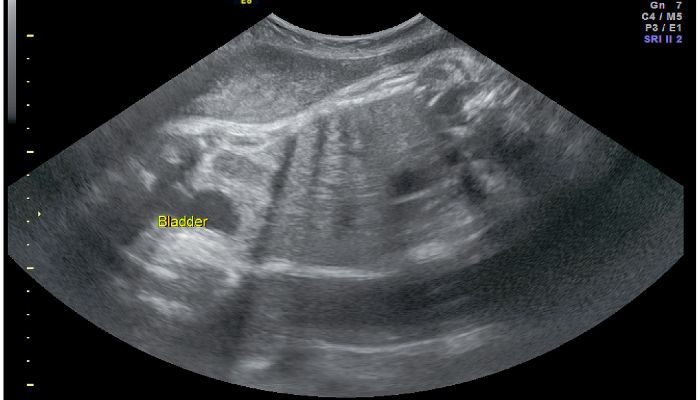
The Role of Ultrasound in Pregnancy: What to Expect at Your First Scan
Pregnancy is a beautiful experience filled with anticipation and joy. One of the first significant milestones you’ll encounter is your first ultrasound scan. This essential procedure not only reassures you about the health and development of your baby but also helps your healthcare provider monitor the progress of your pregnancy. If you’re expecting and preparing for your first ultrasound, this article will guide you through everything you need to know about the role of ultrasound in pregnancy and what to expect during your first scan.
Understanding Ultrasound in Pregnancy
Ultrasound is a non-invasive imaging technique that uses high-frequency sound waves to create detailed images of the inside of your body. When used during pregnancy, ultrasound is a valuable tool to assess the health of both the baby and the mother. Unlike other imaging techniques, such as X-rays, ultrasound does not use radiation, making it safe for both the mother and the developing baby.

Why Is Ultrasound Important During Pregnancy?
Ultrasound plays a vital role in monitoring the progression of your pregnancy and the development of your baby. It helps doctors identify any potential issues early on, ensuring timely intervention when necessary. Some of the key reasons why ultrasound is important during pregnancy include:
- Confirmation of Pregnancy: Ultrasound confirms the pregnancy is in the correct location (intrauterine) and rules out ectopic pregnancies.
- Estimation of Gestational Age: By measuring the size of the baby, ultrasound helps calculate the due date and determines whether the baby is growing as expected.
- Detecting Multiple Pregnancies: Ultrasound helps detect twins or multiple pregnancies.
- Monitoring Fetal Health: It enables the doctor to check the baby’s heartbeat, development, and overall health.
- Placental and Amniotic Fluid Assessment: Ultrasound can evaluate the placenta’s position and check for adequate levels of amniotic fluid, which is essential for the baby’s development.
What to Expect During Your First Ultrasound
Your first ultrasound typically occurs between 6 to 9 weeks of pregnancy. During this time, the baby is still very small, and the ultrasound serves several key purposes. Here’s what you can expect during your first ultrasound:
- Preparation for the Scan:
- If you’re having an abdominal ultrasound, you might be asked to drink water beforehand to ensure your bladder is full. This helps provide clearer images.
- For a transvaginal ultrasound, no special preparation is needed.
- The Procedure:
- Abdominal Ultrasound: A gel will be applied to your abdomen, and a transducer (a small handheld device) will be moved over the area to produce sound waves that create images of your baby.
- Transvaginal Ultrasound: If an abdominal scan doesn’t provide enough detail, a transvaginal ultrasound may be used. In this case, a small probe will be gently inserted into the vagina to take closer images.
- Duration of the Ultrasound: Most ultrasounds last around 15 to 30 minutes. While it may seem like a brief procedure, it provides vital information about the baby’s growth and health.
- Results and Follow-up: After your ultrasound, the sonographer will share the images with your doctor. Your doctor will review the results and explain the findings during your next visit. In some cases, you may be able to see the images and hear the baby’s heartbeat during the scan itself.

The Benefits of Ultrasound in Pregnancy
Ultrasound is an essential part of prenatal care, offering numerous benefits to both mother and baby. Some of the key benefits include:
- Early Detection of Problems: Ultrasound can identify any potential problems early, such as fetal growth issues, abnormal positions of the placenta, or signs of complications like gestational diabetes or preeclampsia.
- Reassurance for Parents: Ultrasound allows expectant parents to see their baby for the first time, hear the heartbeat, and gain peace of mind knowing that the pregnancy is progressing well.
- Guiding Medical Care: The information from the ultrasound can help healthcare providers tailor the pregnancy care plan to ensure the best outcome for both mother and baby.
- Bonding Experience: For many parents, the ultrasound is an emotional and bonding experience, offering a first glimpse of their baby and making the pregnancy feel more tangible.
How Safe Is Ultrasound During Pregnancy?
Ultrasound is considered safe and non-invasive. It has been used in medical practice for decades without evidence of harm to the mother or baby. Unlike X-rays, ultrasound does not use harmful radiation, making it an ideal imaging technique during pregnancy. However, it is always best to follow your healthcare provider’s recommendations regarding the timing and frequency of ultrasounds.
Your first ultrasound is a significant milestone in your pregnancy, providing you with essential information about your baby’s health and development. It is a non-invasive procedure that is safe and offers reassurance to expecting parents. At Punam Surgical and Maternity Hospital, we offer state-of-the-art ultrasound services using the latest technology to ensure that both you and your baby receive the best possible care. Our team is here to guide you through every step of your pregnancy journey.